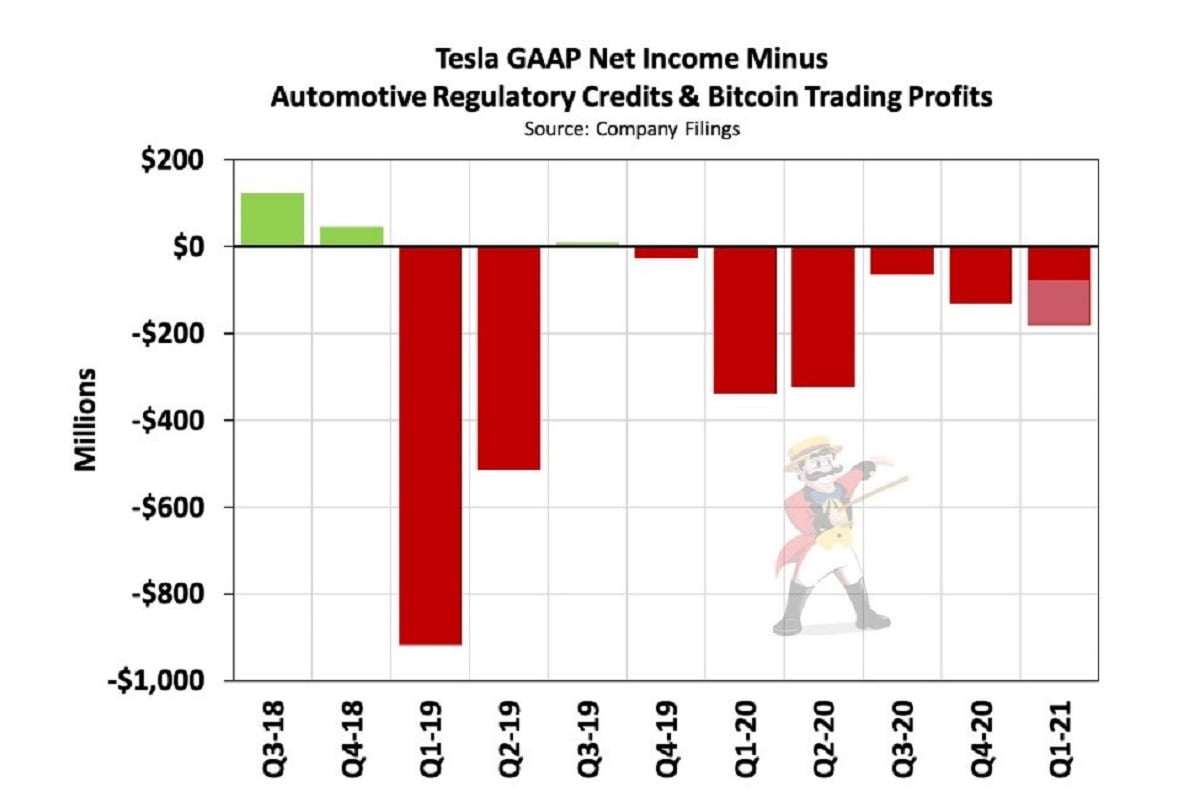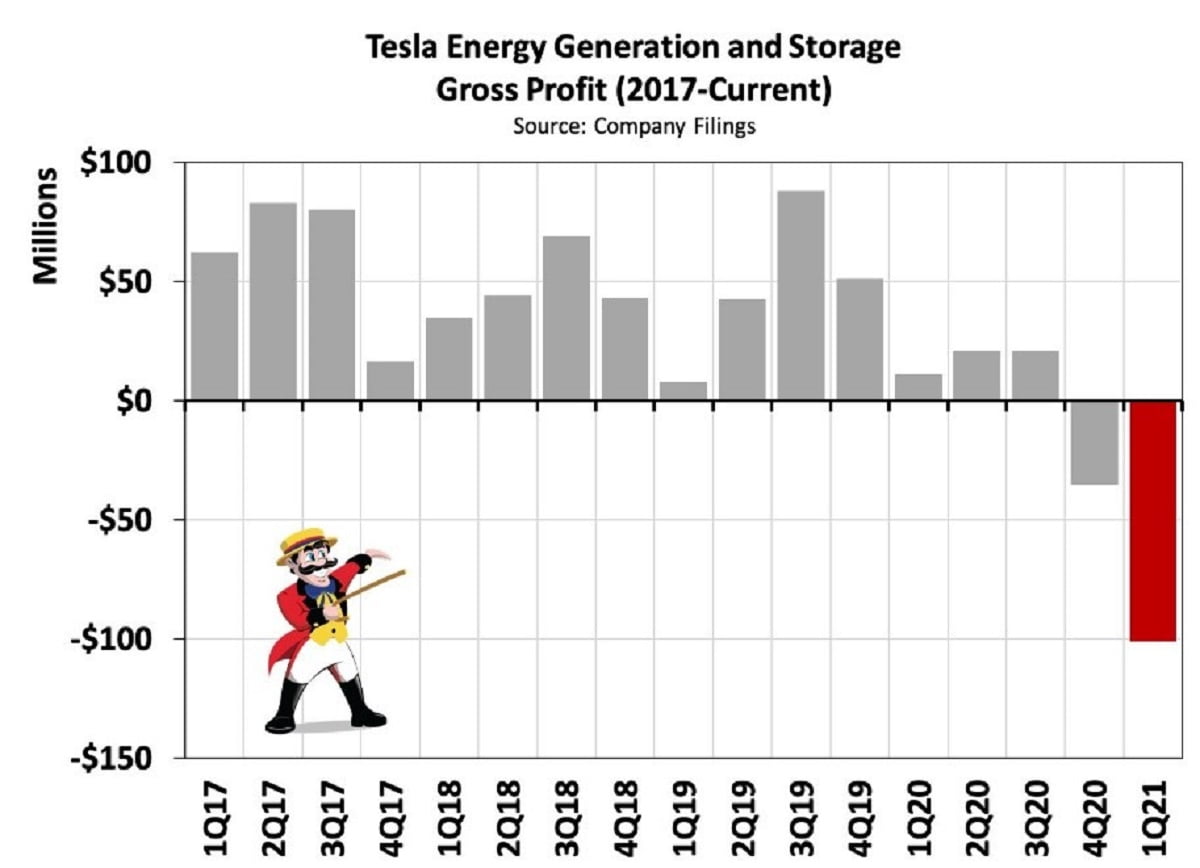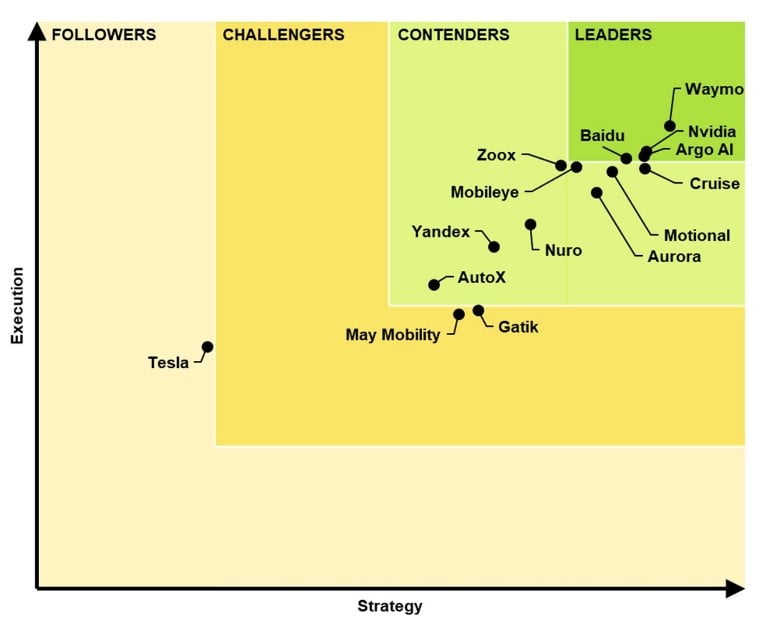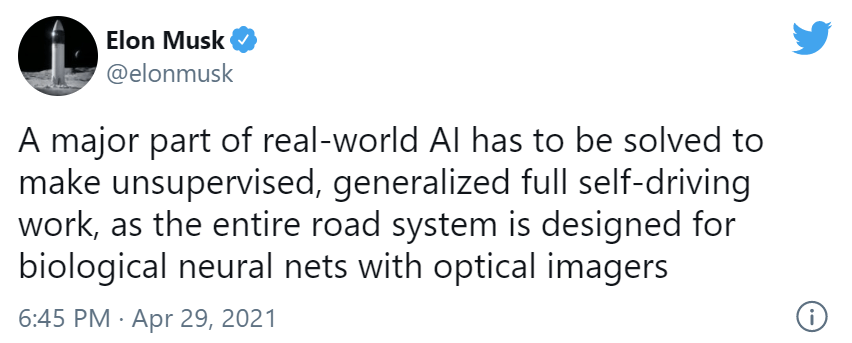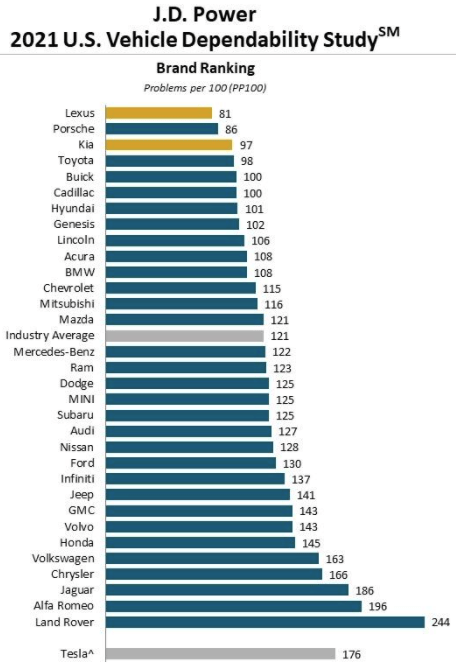Stanphyl Capital’s letter for the month ended April 2021, discussing their short position in Tesla Inc (NASDAQ:TSLA).
Q1 2021 hedge fund letters, conferences and more
As noted earlier, we remain short the biggest bubble in modern stock market history, Tesla Inc. (TSLA), which currently has a diluted market cap of approximately $804 billion, nearly equal to the $812 billion (non-diluted) combined market caps of Toyota ($214 billion), VW ($150 billion), GM ($82 billion), Daimler ($94 billion), BMW ($54 billion), Stellantis ($53 billion), Honda ($51 billion), Hyundai ($49 billion), Ford ($45 billion) and Nissan ($20 billion), despite annualized sales for Tesla of 740,000 cars a year to their over 50 million. The core points of our Tesla short thesis are:
- Tesla has no “moat” of any kind; i.e., nothing meaningfully proprietary in terms of electric car technology, while existing automakers—unlike Tesla—have a decades-long “experience moat” of knowing how to mass-produce, distribute and service high-quality cars consistently and profitably, as well as the ability to subsidize losses on electric cars with profits from their conventional cars.
- Excluding sunsetting emission credit sales Tesla still loses money, as it has every year in its 17-year existence.
- Unit demand for Tesla’s cars is only increasing via continual price cutting.
- Elon Musk is a pathological liar who under the terms of his SEC settlement cannot deny having committed securities fraud.
In April Tesla reported results for Q1 2021, and excluding $594 million of pure-profit emission credit sales (an income stream that nearly disappears after this year when other automakers have enough EVs of their own), $101 million in Bitcoin trading profits (yes, you read that right!) and an ASU-related accounting change, it again lost over $200 million, partially summarized (excluding the accounting change) in this chart from Twitter user @TESLACharts:
Also, revenue declined sequentially from Q4 2020, as did unit deliveries outside of China (and even in China Tesla’s EV market share is plunging while deliveries grew by just 10,000 cars, thanks entirely to the introduction of the Model Y).
And for those who think Tesla is really “an energy company,” for the second consecutive quarter the energy division had a negative gross margin, as graphed here by @TESLACharts:
Now, let's put Tesla's earnings report into context:
If we tax-adjust and remove Q1’s emissions credit & Bitcoin profits and beneficial accounting change (none of which are sustainable contributors to the operating business), Q1 GAAP income was around minus $220 million. However, in fairness to Tesla, stock comp (due to Musk’s massive options awards) was excessive at $614 million. If we add back Musk’s $299 million of that we get normalized GAAP earnings of around $79 million = $0.07/diluted share = $0.28/share annualized = (at April’s closing price of $709.44/share) a current annualized run-rate PE ratio of 2534 (no, that is not a misprint!) for a low-margin car business (and negative margin energy business) with negative sequential revenue comps and massive legal and financial liabilities continually generated by a pathologically lying CEO. An industry multiple of 12x earnings using $0.28 as a normalized annual GAAP number would make TSLA stock worth just $3.36 a share, and one could argue that having such a lying CEO means it merits a discount to the industry.
Meanwhile Tesla’s Q1 2121 European sales (in fact, total sales outside of China) declined vs. Q4 2020. What about China? Well, that government’s love affair with Tesla may be over. And although it wasn’t until Q1 2021 that the Model Y was sold in China, and despite having three full months in Q1 to utilize a massive October price cut (vs. just a bit over two months in Q4), Q1 sales increased over Q4’s by just 10,033 cars, to 69,280 in a market of 5.1 million. In China (as it is everywhere else), Tesla is just a flea in an elephant-sized market and now, exactly as in Europe, China’s EV competitive landscape is getting vicious.
And contrary to what bullish Teslemmings may tell you, those sales are nowhere near being “production constrained,” as Tesla built 180,000 cars in Q1 2021 (and delivered 184,000) while claiming quarterly production capacity of 262,500:
Thus, Tesla is either lying about production capacity or lying about demand… pick one!
Nothing is more amusing than seeing this giant stock promotion of a company try to perpetuate the illusion of being “supply constrained” by continuing to add capacity in order to desperately try to maintain an image of “limitless demand” while it continually slashes prices just to utilize far less than its existing capacity. Tesla’s “plan” is now obvious: keep slashing prices (with occasional recent small bumps to account for soaring input costs) to move as much volume as possible while using the world’s most illicitly creative accounting to maintain razor-thin profitability. But what’s the end game? If Tesla stops cutting prices growth will collapse. Tesla is no longer “a growth story”—it’s a nearly-profitless stock (and Bitcoin!) promotion for idiots!
Meanwhile, the quality of Tesla’s new Model Y is awful, and that car faces current (or imminent) competition from the much better built electric Audi Q4 e-tron, BMW iX3, Mercedes EQA, Volvo XC40 Recharge, Volkswagen ID.4, Ford Mustang Mach E, Nissan Ariya, Hyundai Ioniq 5 and Kia EV6, as well as the less expensive yet excellent all-electric Hyundai Kona and Kia Niro. And Tesla’s Model 3 now has terrific direct “sedan competition” from Volvo’s beautiful Polestar 2 and the premium version of Volkswagen’s ID.3 (in Europe), and later this year from the BMW i4.
And in the high-end electric car segment worldwide, the Audi e-tron and Porsche Taycan now outsell the Model S & Model X, while the absolutely spectacular new Mercedes EQS makes Teslas look like Yugos.
And oh, the joke of a “pickup truck” Tesla previewed in 2019 won’t be much of “growth engine” either, as it will enter a dogfight of a market.
And now the Tesla “autonomy story” - presumably responsible for hundreds of billions of dollars of its market cap - is falling apart. In April there was yet another deadly “Autopilot” crash (for all known Tesla deaths see TeslaDeaths.com), and the 2021 overview from Guidehouse Insights rates Tesla dead last among autonomous competitors:
In fact, now Tesla itself admits it may never achieve full autonomy, as does Musk personally:
In reality, that’s just the Fraudster-in-Chief’s whining excuse for not using LiDAR and high-definition maps in his cars (unlike the rest of the industry). So for once I agree with Musk: with the current (and promised future) Tesla hardware suite, none of its cars will ever achieve full autonomy. Yet that doesn’t stop him from charging $10,000 for a product he explicitly calls “Full Self Driving.” Where are the FTC and SEC on this? As the Wall Street Journal recently reported: nowhere.
Meanwhile, Tesla quality ranks 30th among 33 brands in the latest J.D. Power survey…
…and second-to-last in the latest Consumer Reports reliability survey:
…while the most recent What Car? survey shows similar results with Tesla finishing #29 out of 31.
As for batteries, Tesla has nothing proprietary—it doesn’t make them, it buys them from Panasonic, CATL and LG. And it’s the biggest liar in the industry regarding the real-world range of its cars.
Regarding safety, as noted earlier in this letter, Tesla continues to deceptively sell its hugely dangerous so-called “Autopilot” system, which Consumer Reports has completely eviscerated; God only knows how many more people this monstrosity unleashed on public roads will kill, despite the NTSB condemning it. Elsewhere in safety, in 2020 the Chinese government forced the recall of tens of thousands of Teslas for a dangerous suspension defect the company spent years trying to cover up, and now Tesla has been hit by a class-action lawsuit in the U.S. for the same defect. Tesla also knowingly sold cars that it knew were a fire hazard and did the same with solar systems, and after initially refusing to do so voluntarily, it was forced to recall a dangerously defective touchscreen. In other words, when it comes to the safety of customers and innocent bystanders, Tesla is truly one of the most vile companies on Earth. Meanwhile the massive number of lawsuits of all types against the company continues to escalate.
So here is Tesla's competition in cars (note: these links are regularly updated)...
- Porsche Taycan
- Porsche Taycan Cross Turismo
- Porsche Macan EV to get Taycan platform and tech
- Volkswagen ID.3 Headlines VW's Electrified Future
- Volkswagen ID.4 Electric SUV Available Now in Europe & China, Spring 2021 in U.S.
- Volkswagen ID 6 to arrive with 435-mile range in 2023
- VW’s Cupra brand counts on performance for Born EV
- Cupra, VW brand to get entry-level battery-powered cars
- Audi e-tron: Electric Has Gone Audi
- Audi e-tron Sportback Whispers Electric Luxury
- Audi E-tron GT flagship EV guns for Tesla’s Model S
- Audi attacks EV mass market with Q4 e-tron
- Audi Q6 e-tron confirmed for 2022 launch
- Audi previews long-range A6 e-tron EV
- Audi TT set to morph into all-electric crossover
- Hyundai Ioniq 5 Kicks Off EV Lineup In Eye-Catching Style
- Hyundai Kona Electric
- Genesis says first EV will have sporty acceleration and a generous range
- Genesis Electric Luxury SUV Coming in 2022
- Kia Niro Electric: 239-mile range & $39,000 before subsidies
- Kia unveils EV6 electric crossover: Ioniq 5 in a beautifully different package
- Jaguar’s All-Electric i-Pace
- Jaguar to become all-electric brand; Land Rover to Get 6 electric models
- Mercedes EQS: the first electric vehicle in the luxury class
- Mercedes EQC electric SUV available now in Europe & China
- Mercedes-Benz Launches the EQV, its First Fully-Electric Passenger Van
- Mercedes-Benz unveils EQA electric SUV with 265 miles of range and ~$46,000 price
- Mercedes adds boxy-styled EQB to its EV lineup
- Mercedes preps debut of EQE EV, a Tesla Model S rival
- Ford Mustang Mach-E Available Now
- Ford set to launch ‘mini Mustang Mach-E’ electric SUV in 2023
- The Electric Ford F-150 Will Be Here by Mid-2022
- Volvo Polestar 2
- Volvo XC40 Recharge
- Volvo C40 electric sedan to challenge Tesla Model 3, VW ID3
- Polestar 3 will be an electric SUV that shares its all-new platform with next Volvo XC90
- Chevy updates, expands Bolt EV family as price drops
- Cadillac All-Electric Lyriq Available Spring 2022
- GMC ALL-ELECTRIC SUPERTRUCK HUMMER EV
- GM to build electric Silverado in Detroit with estimated range of more than 400 miles
- GMC to launch electric Hummer SUV in 2023
- GM will offer 30 all-electric models globally by 2025
- GM Launches BrightDrop to Electrify the Delivery of Goods and Services
- Nissan vows to hop back on EV podium with Ariya
- Nissan LEAF e+ with 226-mile range is available now
- BMW leads off EV offensive with iX3
- 2022 BMW i4 Revealed With 523 Horsepower And 300 Miles Of Range
- BMW xDrive50 Has 500 HP, 300-Mile Range: Priced In Mid-$80,000 Range
- 2022 BMW iX1 electric SUV spied
- BMW 3-series EV coming
- Rivian electric pickup truck- funded by Amazon, Ford, Cox & others- is on the way
- Renault upgrades Zoe electric car as competition intensifies
- Renault Dacia Spring Electric SUV
- Renault to boost low-volume Alpine brand with 3 EVs
- How Stellantis will speed up its EV transition
- Peugeot e-208
- PEUGEOT E-2008: THE ELECTRIC AND VERSATILE SUV
- Peugeot 308 will get full-electric version
- Citroen compact EV challenges VW ID3 on price
- Maserati to launch electric sports car
- Mini Cooper SE Electric
- Toyota steps up electric vehicle push with plans for 15 new models
- Mazda extends MX name to new MX-30 electric crossover
- Opel sees electric Corsa as key EV entry
- 2021 Vauxhall Mokka revealed as EV with sharp looks, massive changes
- Skoda Enyaq iV electric SUV offers range of power, battery sizes
- Electric Skoda Enyaq coupe to muscle-in on Tesla Model 3
- Skoda plans small EV, cheaper variants to take on French, Korean rivals
- BYD will launch electric SUV in Europe
- The Lucid Air Achieves an Estimated EPA Range of 517 Miles on a Single Charge
- Bentley converting to electric-only brand
- Rolls Royce to build “Silent Shadow”
- Aston Martin will build electric vehicles in UK from 2025
- Meet the Canoo, a Subscription-Only EV Pod Coming in 2021
- Two new electric cars from Mahindra in India; Global Tesla rival e-car soon
- Former Saab factory gets new life building solar-powered Sono Sion electric cars
- Foxconn aims for 10% of electric car platform market by 2025
And in China...
- How VW Group plans to dominate China's EV market
- VW Goes Head-to-Head With Tesla in China With New ID.4 Crozz Electric SUV
- Volkswagen’s ID.3 EV to be produced by JVs with SAIC, FAW in 2021
- 2022 VW ID.6 Revealed With Room For Seven And Two Electric Motors
- China-built Audi e-tron rolls off production line in Changchun
- Audi Q2L e-tron debuts at Auto Shanghai
- Audi will build Q4 e-tron in China
- Audi in cooperation company for local electric car production with FAW
- FAW Hongqi starts selling electric SUV with 400km range for $32,000
- FAW (Hongqi) to roll out 15 electric models by 2025
- BYD goes after market left open by Tesla with four cheaper models for budget-conscious buyers
- BYD said to launch premium NEV brand ‘Dolphin’ in 2022
- Top of Form
- Bottom of Form
- Daimler & BYD launch DENZA electric vehicle for the Chinese market
- Geely announces premium EV brand Zeekr
- Geely, Mercedes-Benz launch $780 million JV to make electric smart-branded cars
- Mercedes styled Denza X 7-seat electric SUV to hit market
- Mercedes ‘makes mark’ with China-built EQC
- BMW, Great Wall to build new China plant for electric cars
- BAIC Goes Electric, & Establishes Itself as a Force in China’s New Energy Vehicle Future
- BAIC BJEV, Magna ready to pour RMB2 bln in all-electric PV manufacturing JV
- Toyota, BYD will jointly develop electric vehicles for China
- Lexus to launch EV in China taking on VW and Tesla
- GAC Toyota to ramp up annual capacity by 400,000 NEVs
- GAC Aion
- GAC kicks off delivery of HYCAN 007 all-electric SUV
- Nio – Ready For Tomorrow
- Xpeng Motors sells multiple EV models
- Chevrolet Menlo Electric Vehicle Launched in China
- Buick Launches VELITE 6 PLUS MAV Electric Vehicle in China
- Buick Velite 7 EV And Velite 6 PHEV Launch In China
- General Motors’ Chinese Venture to Sink $4.3 Billion Into Electric Vehicles by 2024
- Dongfeng launches the all-electric Voyah
- PSA to accelerate rollout of electrified vehicles in China
- SAIC, Alibaba-backed EV brand IM begins presale of first model L7
- Hyundai Motor Transforming Chongqing Factory into Electric Vehicle Plant
- Polestar said to plan China showroom expansion to compete with Tesla
- Jaguar Land Rover's Chinese arm invests £800m in EV production
- Renault reveals series urban e-SUV K-ZE for China
- Renault & Brilliance detail electric van lineup for China
- Renault forms China electric vehicle venture with JMCG
- Honda Debuts New Everus VE-1 All-Electric SUV, But Only For China
- Honda to roll out over 20 electric models in China by 2025
- Geely launches new electric car brand 'Geometry' – will launch 10 EVs by 2025
- Geely, Foxconn form partnership to build cars for other automakers
- Fiat Chrysler, Foxconn Team Up for Electric Vehicles
- Baidu to create an intelligent EV company with automaker Geely
- Leapmotor starts presale of C11 electric SUV on Jan. 1 2021
- Changan New Energy
- WM Motors/Weltmeister
- Chery
- Seres
- Enovate
- Evergrande Hengchi
- China's cute Ora R1 electric hatch offers a huge range for less than US$9,000
- Singulato
- JAC Motors releases new product planning, including many NEVs
- Seat to make purely electric cars with JAC VW in China
- Iconiq Motors
- Hozon
- Aiways
- NEVS launches electric-car output with Saab 9-3 platform in China
- Youxia
- CHJ Automotive begins to accept orders of Leading Ideal ONE
- Infiniti to launch Chinese-built EV in 2022
- Human Horizons
- Chinese smartphone giant Xiaomi to launch electric car business with $10 billion investment
Here's Tesla's competition in autonomous driving...
- Consumer Reports finds Tesla's Navigate on Autopilot is far less competent than a human driver
- Waymo ranked top & Tesla last in Guidehouse leaderboard on automated driving systems
- Tesla has a self-driving strategy other companies abandoned years ago
- Fiat Chrysler, Waymo expand self-driving partnership for passenger, delivery vehicles
- Waymo and Lyft partner to scale self-driving robotaxi service in Phoenix
- Volvo, Waymo partner to build self-driving vehicles
- Jaguar and Waymo announce an electric, fully autonomous car
- Renault, Nissan partner with Waymo for self-driving vehicles
- Cruise and GM Team Up with Microsoft to Commercialize Self-Driving Vehicles
- Cadillac Super Cruise™ Sets the Standard for Hands-Free Highway Driving
- Honda Joins with Cruise and General Motors to Build New Autonomous Vehicle
- Honda launching Level 3 autonomous cars
- Volkswagen moves ahead with Autonomous Driving R&D for Mobility as a Service
- Volkswagen teams up with Microsoft to accelerate the development of automated driving
- VW taps Baidu's Apollo platform to develop self-driving cars in China
- Ford's electric Mustang will offer hands-free driving technology in 2021
- Ford-VW alliance with Argo could redraw self-driving sector
- Hyundai and Kia Invest in Aurora
- Toyota, Denso form robotaxi partnership with Aurora
- Aptiv and Hyundai Motor Group complete formation of autonomous driving joint venture
- Amazon’s Zoox unveils electric robotaxi that can travel up to 75 mph
- Nvidia and Mercedes Team Up to Make Next-Gen Vehicles
- Daimler's heavy trucks start self-driving some of the way
- SoftBank, Toyota's self-driving car venture adds Mazda, Suzuki, Subaru Corp, Isuzu Daihatsu
- Continental & NVIDIA Partner to Enable Production of Artificial Intelligence Self-Driving Cars
- Mobileye and Geely to Offer Most Robust Driver Assistance Features
- Mobileye Starts Testing Self-Driving Vehicles in Germany
- Mobileye and NIO Partner to Bring Level 4 Autonomous Vehicles to Consumers
- Lucid Chooses Mobileye as Partner for Autonomous Vehicle Technology
- Nissan gives Japan version of Infiniti Q50 hands-free highway driving
- Hyundai to start autonomous ride-sharing service in Calif.
- Pony.ai raises $462 million in Toyota-led funding
- Baidu kicks off trial operation of Apollo robotaxi in Changsha
- Toyota to join Baidu's open-source self-driving platform
- Baidu, WM Motor announce strategic partnership for L3, L4 autonomous driving solutions
- Volvo will provide cars for Didi's self-driving test fleet
- BMW and Tencent to develop self-driving car technology together
- BMW, NavInfo bolster partnership in HD map service for autonomous cars in China
- FAW Hongqi readies electric SUV offering Level 4 autonomous driving
- Tencent, Changan Auto Announce Autonomous-Vehicle Joint Venture
- Huawei teams up with BAIC BJEV, Changan, GAC to co-launch self-driving car brands
- BYD partners with Huawei for autonomous driving
- Lyft, Magna in Deal to Develop Hardware, Software for Self-Driving Cars
- Xpeng releases autonomous features for highway driving
- Nuro Becomes First Driverless Car Delivery Service in California
- Deutsche Post to Deploy Test Fleet Of Fully Autonomous Delivery Trucks
- ZF autonomous EV venture names first customer
- Magna’s new MAX4 self-driving platform offers autonomy up to Level 4
- Groupe PSA’s safe and intuitive autonomous car tested by the general public
- Mitsubishi Electric to Exhibit Autonomous-driving Technologies in New xAUTO Test Vehicle
- Apple acquires self-driving startup Drive.ai
- Momenta – Building Autonomous Driving Brains
- JD.com Delivers on Self-Driving Electric Trucks
- NAVYA Unveils First Fully Autonomous Taxi
- Fujitsu and HERE to partner on advanced mobility services and autonomous driving
Here's where Tesla's competition will get its battery cells...
- Panasonic (making deals with multiple automakers)
- LG
- Samsung
- SK Innovation
- Toshiba
- CATL
- BYD
- Volkswagen to Build Six Electric-Vehicle Battery Factories in Europe
- Ultium (General Motors & LG joint venture)
- GM to develop lithium-metal batteries with SolidEnergy Systems
- Ford Plans to Manufacture Its Own Batteries for Electric Vehicles
- Ford invests in Solid Power solid-state batteries
- PSA And Total Officially Launch Automotive Battery Cell Company
- UK companies AMTE Power and Britishvolt plan $4.9 billion investment in battery plants
- Toyota's game-changing solid-state battery en route for 2021 debut
- BMW working 'intensively' on solid state batteries
- Verkor
- Farasis
- Microvast
- Akasol
- Cenat
- Wanxiang
- Eve Energy
- Svolt
- Romeo Power
- ProLogium
- Hyundai Motor developing solid-state EV batteries
- Daimler
- Morrow
Here's Tesla's competition in charging networks...
- Electrify America is spending $2 billion building a high-speed U.S. charging network
- GM, EVgo partner to expand U.S. charging network
- Circle K Owner Plans Electric-Car Charging Push in U.S., Canada
- 191 U.S. Porsche dealers are installing 350kw chargers
- ChargePoint to equip Daimler dealers with electric car chargers
- GM and Bechtel plan to build thousands of electric car charging stations across the US
- Ford introduces 12,000 station charging network, teams with Amazon on home installation
- Shell Plans To Deploy Around 500,000 Charging Points Globally By 2025
- Petro-Canada Introduces Coast-to-Coast Canadian Charging Network
- Volta is rolling out a free charging network
- Ionity Europe
- E.ON and Virta launch one of the largest intelligent EV charging networks in Europe
- Volkswagen plans 36,000 charging points for electric cars throughout Europe
- Smatric has over 400 charging points in Austria
- Allego has hundreds of chargers in Europe
- PodPoint UK charging stations
- BP Chargemaster/Polar is building stations across the UK
- Instavolt is rolling out a UK charging network
- Fastned building 150kw-350kw chargers in Europe
- Aral To Install Over 100 Ultra-Fast Chargers In Germany
- Deutsche Telekom launches installation of charging network for e-cars
- Total to build 1,000 high-powered charging points at 300 European service-stations
- NIO teams up with China’s State Grid to build battery charging, swapping stations across country to compete with Tesla
- Volkswagen-based CAMS launches supercharging stations in China
- Volkswagen, FAW Group, JAC Motors, Star Charge formally announce new EV charging JV
- BP, Didi Jump on Electric-Vehicle Charging Bandwagon
- Evie rolls out ultrafast charging network in Australia
- Evie Networks To Install 42 Ultra-Fast Charging Sites In Australia
And here's Tesla's competition in storage batteries…
- Panasonic
- Samsung
- LG
- BYD
- AES + Siemens (Fluence)
- GE
- Bosch
- Hitachi ABB
- Toshiba
- Saft
- Johnson Contols
- EnerSys
- SOLARWATT
- Schneider Electric
- Sonnen
- Kyocera
- Generac
- Kokam
- NantEnergy
- Eaton
- Nissan
- Tesvolt
- Kreisel
- Leclanche
- Lockheed Martin
- EOS Energy Storage
- ESS
- UET
- electrIQ Power
- Belectric
- Stem
- ENGIE
- Redflow
- Renault
- Primus Power
- Simpliphi Power
- redT Energy Storage
- Murata
- Bluestorage
- Adara
- Blue Planet
- Tabuchi Electric
- Aggreko
- Orison
- Moixa
- Powin Energy
- Nidec
- Powervault
- Shanghai Electric
- Schmid
- 24M
- Ecoult
- Innolith
- LithiumWerks
- Natron Energy
- Energy Vault
- Ambri
- Voltstorage
- Cadenza Innovation
- Morrow
- Gridtential
Thanks and stay healthy,
Mark Spiegel

